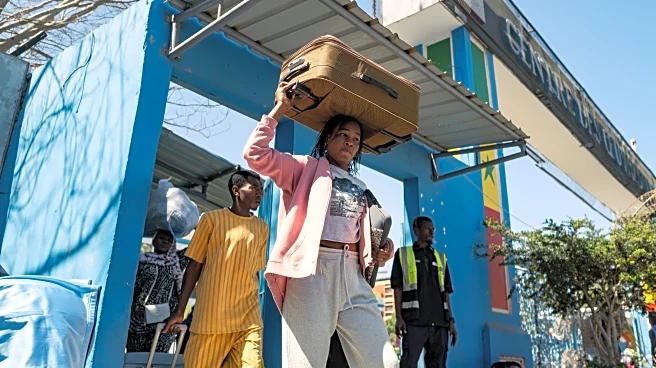Rapid Read • 8 min read
American tennis player Sloane Stephens has become a prominent advocate for fertility treatment support in women's sports, particularly tennis. As she approached 30, Stephens faced the challenge of balancing her career ambitions with her desire to start a family. To address this, she chose to freeze her eggs twice, becoming a trailblazer among her peers. The Women's Tennis Association (WTA) Tour, backed by Saudi Arabia's Public Investment Fund, has introduced initiatives providing grants for egg and embryo freezing, IVF treatment, and paid maternity support. Additionally, ranking protection is offered to players undergoing these procedures, allowing them to return to competition without penalty. Stephens believes these measures will enable athletes to consider family planning earlier in their careers, changing the trajectory of women's sports.
AD
The initiatives introduced by the WTA Tour represent a significant shift in how women's sports address fertility and family planning. By providing financial and career support, these measures empower female athletes to make informed decisions about their futures without sacrificing their professional aspirations. This support could lead to increased participation and longevity in sports careers for women, as they no longer have to choose between their careers and starting a family. The broader impact may extend beyond tennis, encouraging other sports to adopt similar policies, thereby advancing gender equality in athletics and supporting the rights of female athletes to have families.
The success of these initiatives in tennis could prompt other sports organizations to implement similar support systems for female athletes. As conversations around fertility and family planning become more open, there may be increased advocacy for comprehensive support across all women's sports. Stephens and other athletes may continue to push for better resources and policies, potentially influencing the future landscape of women's athletics. The long-term effects could include a more inclusive and supportive environment for female athletes, allowing them to pursue both personal and professional goals without compromise.
The introduction of fertility support in women's sports raises important ethical and cultural considerations. It challenges traditional views on the roles and expectations of female athletes, promoting a more progressive approach to career and family balance. This development may also influence societal perceptions of motherhood and professional success, encouraging broader acceptance and support for women pursuing both. Additionally, it highlights the need for ongoing dialogue and policy development to ensure equitable access to resources and support for all female athletes, regardless of their sport or career stage.
AD
More Stories You Might Enjoy













